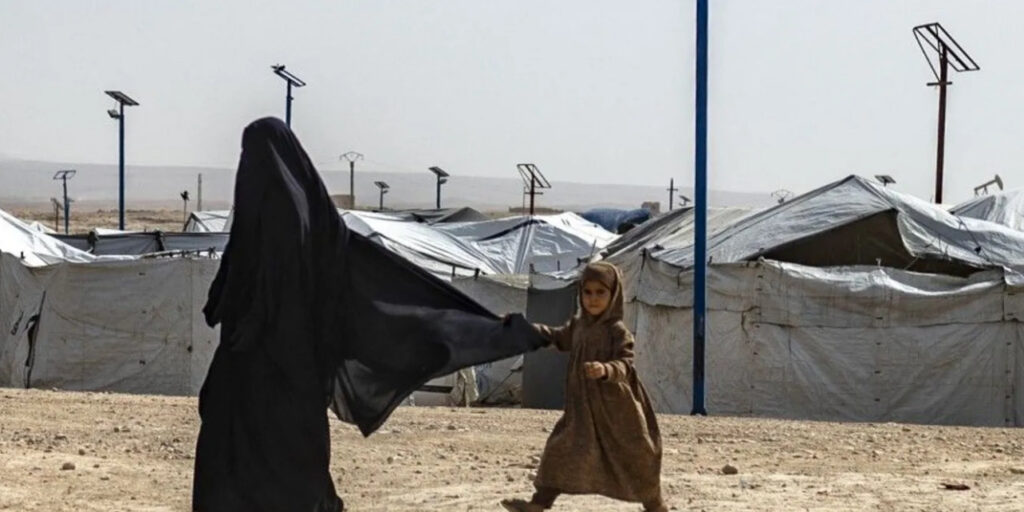The UK government should reconsider its stance on repatriating British citizens linked to the Islamic State (IS) group who are being held in detention camps in Syria, according to Jonathan Hall KC, the government’s independent terrorism legislation reviewer. Hall’s comments come amid growing international pressure, particularly from the United States, to address the situation of IS-affiliated individuals.
Calls for Repatriation and National Security Concerns
Speaking to BBC Radio 4’s The World Tonight, Hall argued that repatriation of British IS members could align with national security interests. He explained that bringing individuals back to the UK could allow for their prosecution and monitoring, potentially mitigating long-term risks.
“There is obviously some national security benefit of leaving people there because you don’t have to monitor them,” Hall said. “On the other hand, if they escape from the camps, they could become much more dangerous to the UK.”
While Hall acknowledged the complexity of cases like that of Shamima Begum, he urged policymakers to focus on the broader implications for security rather than individual narratives.
Shamima Begum’s Controversial Case
Shamima Begum, who left London as a teenager in 2015 to join IS, has become a focal point of the debate. Now detained in a Syrian camp, Begum was stripped of her UK citizenship in 2019 on national security grounds. Her appeals have been exhausted, and the government remains steadfast in its position.
Foreign Secretary David Lammy recently reiterated that Begum “will not be coming back to the UK,” emphasizing that the government prioritizes national security over repatriation.
International Pressure on the UK
The issue has also drawn attention from the United States. Sebastian Gorka, the incoming counter-terrorism chief under Donald Trump, has called on the UK to demonstrate its commitment to the “special relationship” by taking responsibility for its citizens.
“Any nation which wishes to be seen as a serious ally and friend of the most powerful nation in the world should act in a fashion that reflects that serious commitment,” Gorka told The Times.
Other nations, including the US and several European countries, have repatriated their citizens from Syrian camps, often prosecuting and imprisoning them upon their return.
Security Risks of Syrian Detention Camps
Since the fall of IS in 2019, thousands of women and children linked to the group remain detained in overcrowded camps in northern Syria. These camps face increasing threats from instability in the region, raising concerns about potential escapes and radicalization.
Hall noted that while repatriation poses challenges, the risk of leaving individuals in these camps could be more severe. “If they are left there… and then they escape, they would be much more dangerous, actually, to the UK.”
Political Stance on Repatriation
Despite calls for a reevaluation, the UK government remains resolute in its opposition to repatriating IS-affiliated individuals. Conservative leader Kemi Badenoch reinforced this stance, saying, “Citizenship means committing to a country and wanting its success. It’s not an international travel document for crime tourism.”
Hall, however, argued that repatriation does not equate to moral absolution. “If someone came back, it wouldn’t prevent them from potentially being prosecuted for what they’ve done,” he said.
As the debate continues, the UK faces mounting pressure to balance national security with its international obligations.


